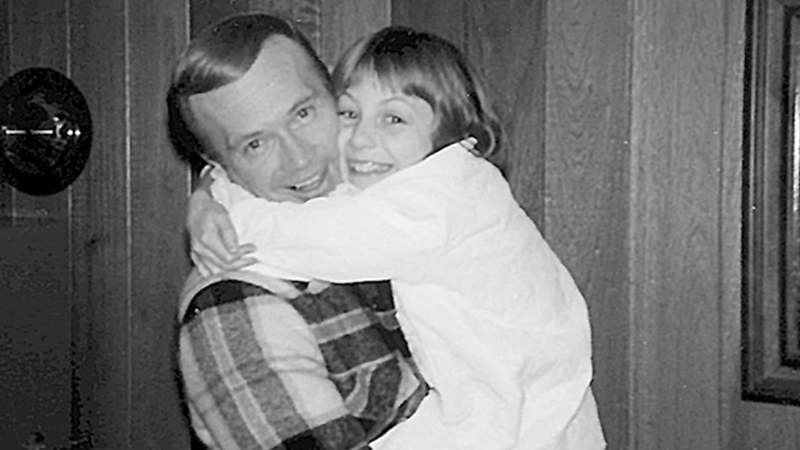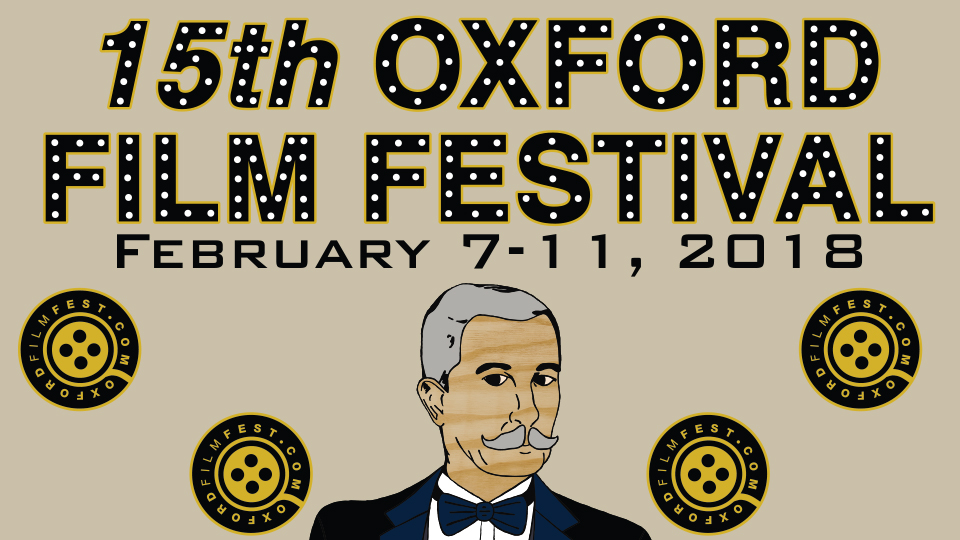The word that one hears over and over again at the Oxford Film Festival is “community.” It’s lauded in introductions before screenings and during Q&As. It comes up at panels and at after-parties. And it’s repeated by presenters and winners at the awards ceremony. This is a festival that seeks to reflect the community from which it arises, both the local one and the international one connected by filmmaking. It is a homegrown, intimate festival that nonetheless features voices from around the world, harmoniously united through the community of film.
I was honored to be invited this year to be a part of two juries—picking winners from the Narrative Features and Mississippi Features sections. In my role as a juror, I saw ten films, and I sought out a handful of other works that premiered at the 15th annual event while I was in Oxford, as well having seen a few of their entries at previous fests (Adam Rifkin’s “The Last Movie Star,” which used to be called “Dog Years,” and Ted Geoghegan’s “Mohawk,” being released next month). The juror/guest vantage point allowed me a unique angle on the event, seeing the diversity in subject matter, style, and voice at an ambitious regional festival. There are films that are made by and star local residents next to works that have played around the world that feature household names. For a weekend, everyone comes together in the same tent. Here are a few highlights to watch for if they come to a theatre near you or appear On Demand in the future:

“Forever ‘B’”
The logline for Skye Borgmann’s stunning “Forever ‘B’” is “Abducted. In plain sight.” Those four words only barely capture this harrowing true story, beautifully constructed by Borgmann as a series of shocking revelations that culminate in an empowering ending. Reminiscent of Netflix’s “The Keepers” or the doc “Dear Zachary,” this is a true crime doc that presents the kind of story that would be considered unbelievable were it part of a fictional feature film. It is deeply disturbing, but it’s not just the “whoa” factor of its true story but the craft of the filmmaking here that elevates the final product above something you’d see on “Dateline NBC.” Never once feeling exploitative or insensitive, it is the approach to the material from Borgmann and her team that make this movie so powerful, not just the story itself.
In 1974, 12-year-old Jan Broberg was kidnapped by her neighbor, a man known to the Broberg family as “B.” Bob Berchtold was a predator, but that word only hints at his cruelty and malevolence. He basically befriended the Broberg family and completely tore them apart, in an effort to get what he wanted all along: Jan. He was a terrifying sociopath, who brainwashed everyone involved, no one more so than Jan, who eventually came to believe she needed to be with ‘B’ for the rest of her life. After months on the run, Jan and ‘B’ were found in Mexico. Not long after that, he kidnapped her again.
Borgmann’s greatest asset turns out to be the Brobergs themselves, who give confessional, emotional interviews straight to camera. Jan and her parents withhold virtually nothing about the horror inflicted upon them by Berchtold, and a lesser filmmaker would not have been able to create the trust that allowed for such heartbreaking revelations. “Forever ‘B’” is a difficult movie to watch but it’s the craft of the filmmaking that keeps it together and keeps it focused on the survivors and not the villain. ‘B’ will haunt this family forever, but the film feels like a reclamation of the Broberg story, one that emphasizes survival more than anything else.
Note: The title was changed to “Abducted in Plain Sight” after the film festival.

“Liyana”
Just as Jan Broberg has reclaimed her own story, another doc from Oxford reminds us how much we are all storytellers in our own lives. Aaron and Amanda Kopp’s hybrid documentary won two awards at the Oxford Film Festival this year, and it’s easy to see this moving work find an audience if they’re given a chance to see it. It’s a film that beautifully embodies Roger Ebert’s belief that great cinema is an empathy machine, transporting us to a country that a vast majority of people will never visit and allowing a window into a world rarely seen on film.
“Liyana” is named after the title character in a rollicking, animated adventure about a young Swazi girl who has to rescue her twin brothers from monsters and thieves. This adventure was written by five Swazi orphaned children, encouraged by a teacher to work together to come up with a story that reflects their lives, cultures, and dreams. Swaziland is a country ravaged by AIDS—a quarter of the people there have HIV—and survival becomes a major theme of the story within a story. The Kopps brilliantly choose to allow the young children to do the storytelling, intercutting their vibrant, passionate narration/interviews with animated shots of the story they’re crafting, animated by Shofela Coker. The result is a captivating documentary that reminds us that great art often reflects the world in which it is created, and that encouraging this kind of expression and passion makes us human.

“The Sounding”
Another story of empowerment—it was definitely a theme this year—comes courtesy of the multi-talented Catherine Eaton, who co-wrote, directed, and stars in this unique drama that won her a Special Recognition from the jury on awards night. Eaton plays Liv, a woman who lives on a remote island off the coast of Maine. Liv doesn’t speak. She has the physical ability to speak, but chooses not to, which fascinates a young neurologist brought to the island. Of course, he has no idea what to really do with her, and Liv ends up in a psychiatric hospital, where she begins to speak, but only through the words of William Shakespeare. She ends up something of a hero in the hospital, as the male doctors around her have no idea how to treat her.
“The Sounding” works best as an actor’s showcase, and Eaton commits herself completely to a character who could have come off silly in a lesser performer’s hands. She’s crafted a drama about a woman who doesn’t fit preconceived—mostly by men—notions of sanity. In a sense, “The Sounding” is an examination, and ultimately embrace, of otherness, a film that refuses to put atypical behavior in a neatly-formed box. It’s not a perfect film, but the message of refusing to accept a patriarchal definition of normality feels like an important one in 2018. And Eaton is an undeniable talent to watch.

Other Highlights
“The Cop Chronicles: Loose Cannons: The Legend of the Haj-Mirage” is as goofy and fun as its title suggests, recalling the energy of early films from the group at Broken Lizard or the Zucker Brothers. It is a spoof of cop movies that could easily become a cult hit on the midnight circuit, with several recurring jokes that make me laugh just remembering them. It’s the kind of thing for which your mileage will greatly vary—as with all late-night comedies—but I’m really eager to see what these guys do next.
“I Am Evidence” premieres on HBO later this year and it’s worth keeping an eye on the network for when it does. It’s a powerful documentary about the news from about a decade ago that several major cities had thousands of untested rape kits. We’ll write more about it when it premieres, but it’s a well-done examination of just how much the justice system has failed women, especially the poor, minority ones in cities like Cleveland and Detroit. These rape kits weren’t untested purely out of budget or manpower reasons—it’s because rape, especially of certain demographics, still isn’t a priority for our legal system. And that’s something that should infuriate everyone. One hopes that “I Am Evidence,” and the heroes it profiles, have the power to fix a broken, unfair system. As one of the subjects says, “The system should be better than a criminal.” Amen.
“The Drawer Boy,” my jury’s winner for Best Narrative Feature, is based on a hit Canadian play about a project in which actors and playwrights went into the Ontario farmland to “see how farmers live.” It’s basically a three-hander between the city kid and a pair of farmers with whom he stays. There are secrets and revelations, but the film version works most of all because of the dedicated performances at its center. This is the kind of thing that I could easily see working the fest circuit for months and will likely find its way home eventually. Keep your eyes peeled for it.
Canadian dramas, Swazi stories, true crime documentaries—clearly, there’s a variety of films represented by the Oxford Film Festival. And what’s special about festivals like this is the recognition that community works best when it’s diverse. It’s not one voice from one background but multiple voices from around the world that will make us stronger. It’s a community that opened its arms and embraced me for a few days. And I feel grateful for the experience.












